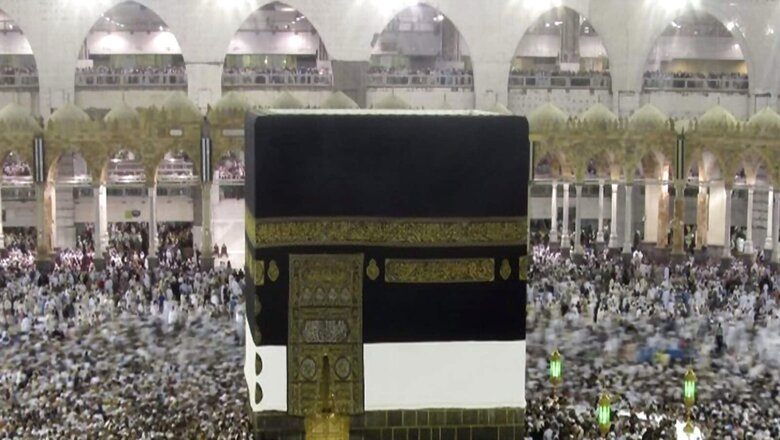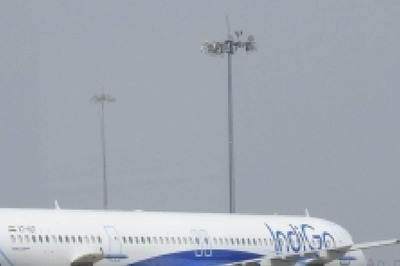
views
The Centre on Wednesday decided to scrap the discretionary Haj quota that could be used by people in top constitutional post, Union Miniority Affairs Minister Smriti Irani announced.
The decision, Irani said, was taken as part of Prime Minister Narendra Modi’s resolve to end ‘VIP culture’.
Why has the government decided to end it?
A decision has been take (to end discretionary quota in Haj). Prime Minister Modi had put forward his resolve to end VIP culture on the very first day of his term. VIP culture was put in place with respect to Haj during the UPA rule under which there was a special quota allocated to the Ministry of Minority Affairs, Haj Committee and all those in top constitutional posts,” Irani said.
Irani also hit out at the Congress-led UPA government, in whose regime the Haj quota was introduced.
“The government has ended that… The PM believed that if we have to do away with VIP culture completely then if there is any such special categorisation in any department, it should be ended,” Irani said.
Speaking further on the quota, she said that it started in 2012 with around 5,000 seats under it. If anyone knew someone in the government, they would get a seat in it, she added.
What about a new policy?
In place of the existing policy, the BJP-led government will bring in a new, exhaustive policy. Irani said that a new policy has been formulated and is set to be announced soon.
Also, the previous Haj policy has expired because it was set for the time period of 2018 to 2022.
India’s Haj policy and agreement with Saudi
India has entered into an annual agreement with Saudi Arabia for the Hajj pilgrimage. Saudi Arabia allots the quota to Indians, and from here the Ministry of Minority Affairs and the Haj Committee of India (HCoI) assigns it further.
According to the previous policy document, nearly 70 per cent of the country’s total seats were taken by Haj Committee of India while the rest were given to private operators. Out of the total seats taken by the HCoI, 500 were given under the discretionary quota the centre wishes to do away with.
Under the Government discretionary quota that gives 500 seats, 200 goes with the Haj Committee and the rest 300 goes to people holding important public offices.
What is Haj?
The Haj is an annual pilgrimage to Mecca in Saudi Arabia undertaken by Muslims around the world. Mecca is considered to be the holiest city for people who follow the Islamic faith. The journey is a mandatory religious duty for all Muslims and is one of the five core pillars of Islam.
Over 1 lakh Indians to perform Haj this year
This year, a total of 1,75,025 Indian Haj pilgrims will be able to perform Haj, reportedly the highest in history.
After three years of restrictions to curb the Covid-19 pandemic, Saudi Arabia has decided to not impose limits on the number of pilgrims for this year’s hajj. Minister of Hajj and Umrah Tawfiq Al-Rabiah said that the number of pilgrims will return to what it was before the pandemic, without any age limit.
In 2019, about 2.5 million people took part in the rituals. For the next two years numbers were drastically curtailed numbers due to the pandemic. In 2022, nearly 900,000 pilgrims, including some 780,000 from abroad, were welcomed to Islam’s holiest cities of Mecca and Medina.
At that time, they had to be aged under 65, as well as have a vaccination against Covid-19 and present a negative test.
Read all the Latest Explainers here



















Comments
0 comment